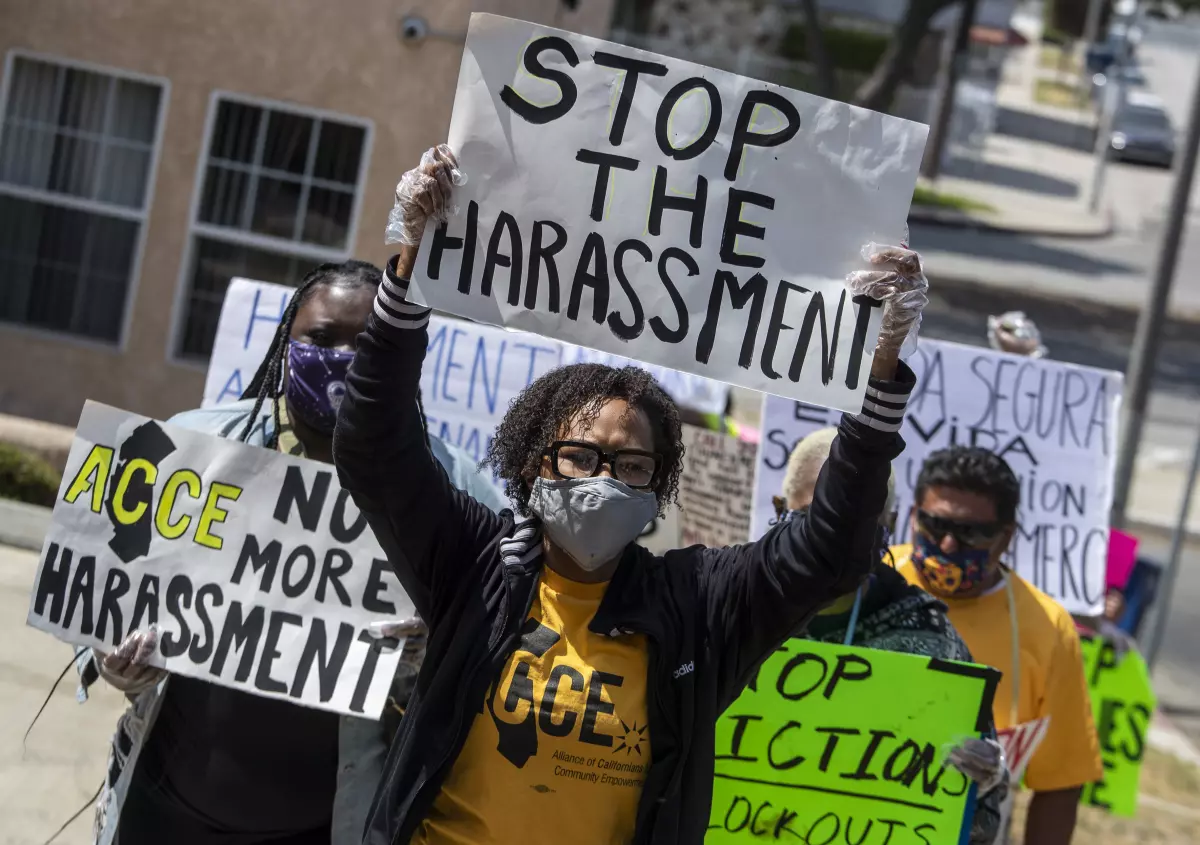As reported in Jacobin, a small building in Highland Park has now become the site of the most significant tenant rights victory Los Angeles has seen since the pandemic. What makes this win historic is not only that tenants stopped an aggressive harassment campaign, but that their organizing forced the city to finally enforce the Tenant Anti Harassment Ordinance.
TAHO was originally passed in 2021 after pressure from tenant unions, legal aid groups, and renters living through constant intimidation. The law was supposed to give tenants a powerful tool to hold landlords accountable for tactics like illegal lockouts, utility shut offs, construction meant to drive people out, or threats related to immigration status. But from the moment it passed, the city barely used it. More than 21,000 complaints were filed between 2021 and 2024, and yet only 35 cases were ever referred for any kind of enforcement. No criminal charges were filed, and the law quickly became known as a symbolic victory without actual consequences.
By 2024, tenant organizers were demanding the city fix the ordinance. The amendments now known as TAHO 2.0 were adopted in November 2024 and changed the landscape completely. The updates added stronger penalties, clarified what counted as harassment, and expanded the city’s ability to bring administrative cases. Crucially, TAHO 2.0 made it easier for tenants to assert harassment as a defense in eviction court, raised the amount of damages tenants could recover, and created clearer procedures for investigating complaints. On paper, it finally gave the city a functional enforcement structure.
When the City Council adopted the updated ordinance, Councilmember Nithya Raman described it as “the end of a long road” to fixing a law that “wasn’t working as we had hoped.” She noted that the amendments were shaped by months of feedback from tenants, case workers, legal aid groups, and community organizations, all of whom had watched the original 2021 ordinance fail in practice. She also warned that no tenant-protection policy means anything without the staffing and infrastructure to enforce it. In her remarks, she pushed the city to treat enforcement as seriously as it treats housing production and insisted that protecting tenants and building more affordable housing should never be pitted against each other.
But even with a stronger law, nothing happened until a group of tenants in a five unit building decided to fight back. Their landlord began raising security deposits, fencing off long time parking spaces, tearing out a garden they cared for, and performing disruptive construction work that made daily life difficult. One tenant was pressured with cash for keys offers. Another found their kitchen and bathroom blocked by plywood. After months of this, the tenants reached out to the Los Angeles Tenants Union, began documenting everything, and pushed the city to enforce TAHO 2.0 exactly as it was meant to be used.
That pressure worked. For the first time since the ordinance was created, the city has filed criminal charges and administrative citations against a landlord for tenant harassment. It took three years, thousands of ignored complaints, and the arrival of TAHO 2.0 to make it possible, but this is now the first real example of the city using its own law as intended.
The Jacobin report makes clear that this victory did not come from process or policy alone. It came from tenants insisting on enforcement, gathering evidence, organizing collectively, and refusing to be displaced. The timeline matters here. A law written in 2021 sat inactive for years, the strengthened version passed in 2024 gave tenants new leverage, and only the determination of this building’s residents pushed the city to finally act.
Their win shows that the legal tools to fight harassment do exist, but they only work when tenants are organized, persistent, and supported by advocates who know the system. It also highlights how many renters suffer quietly while the city fails to enforce laws designed to protect them.

